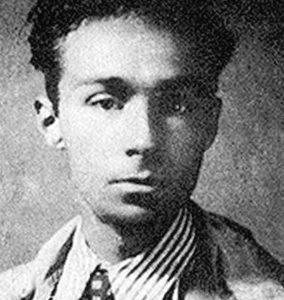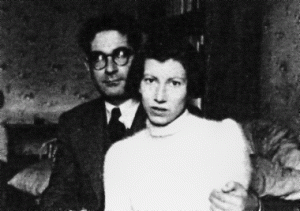Last week, the Medieval and Modern Languages team at Oxford had the pleasure of meeting a group of Year 9 students from several schools across Oxfordshire. We spent an afternoon with them doing workshops on film subtitling in French, German, and Spanish, picking up some Russian, Portuguese, Italian, and Hebrew ab initio (from scratch), as well as being treated to an introduction to linguistics. At the end of the afternoon, Dr Simon Kemp, who teaches French at Somerville College, gave us an overview of Modern Languages at university. If you are considering languages as an option at degree level, take a look below at Simon’s presentation…
Monthly Archives: January 2018
Joint Schools Part 2: Applying
Last week, Georgina Ramsay, who studies French and English at The Queen’s College, gave us an introduction to studying a modern language alongside another subject. This week she tells us more about applying…
Applying
Once I was certain I was going to apply for English and French the first challenge was writing a personal statement that conveyed my passion for both the subjects. Something I would advise when it comes to writing personal statements for joint-honours degree courses is to find connections between the two subjects because, after all, the reason you are applying for two subjects rather than one is because you think they are complementary.
Admissions Test
Something to consider when applying for a joint-honours course at Oxford is that you might have to take two admissions tests. For me that meant taking both the ELAT and the MLAT on the same day. Before the day of the tests try to do as much practice in timed conditions as you can, using the past papers available online. If possible – especially with the MLAT – it can be useful to ask your languages teacher to have a look through it or go over anything you are unsure of. On the day of the tests remember to pace yourself!
Interviews
As you are applying for two subjects you need to be interviewed, and then accepted, by both tutours for both subjects. One of my concerns as my interview approached was speaking in the foreign language in my French interview. This is a common worry but remember that tutors do take into account that you are an A-Level student and also that you are probably nervous, so they are not expecting anything at all close to fluency. In fact, I remember in the last few minutes of my interview being asked a question in French and stumbling through and probably making mistakes. Do your best but do not worry about perfectionism! When it comes to analysing literature in the foreign language tutors are also aware that you may not have done this before but as the course places a large emphasis on literature it is definitely something to be aware of when applying.
Joint Schools: What are they?
At the University of Oxford you can study Modern Languages in combination with a number of other subjects: Classics, English, History, Linguistics, Middle Eastern Languages, and Philosophy. In this post, Georgina Ramsay, who studies French and English at The Queen’s College, tells us about what motivated her to do a Joint Schools degree. More information about Joint Schools Degrees can be found through the course listings on the University admissions pages. Over to Georgina…
It wasn’t until I was applying to university that I came across the term ‘joint-honours’ but I was definitely glad when I did. I had always assumed that I would apply to study English at university but following GCSEs, the first year of A-Levels and then attending the UNIQ Summer School I started to really consider the possibility of studying French. As excited as I was by the prospect of continuing to improve my French skills I was still conflicted between my two favourite subjects.

It was whilst researching degree courses that I realised that it was possible for me to continue with both English and French as there were some universities, including Oxford, that offered joint-honours degrees. I narrowed down my options, taking into account the split between the two subjects (some institutions place more emphasis on one subject) and what I liked about the Oxford course was that there was a 50:50 split.

As an avid reader and bibliophile I had wanted to study English Literature because I liked the window it gave me into the world, history and different cultures. However, these reasons also applied to why I wanted to study French. A-Level French had been my first introduction into reading literature in another language and I had really enjoyed it. I realised that in studying French I would have access to a whole new world of Francophone literature.
After now having completed a full academic year I am certain that deciding to apply for both English and French was the right decision. I am now in my second year and I am still realising more and more the connections that can be made between the two sides of my course. For example, last year on the English side of my course I was really interested in postcolonial literature and looked at works by Frantz Fanon, a Martinican writer. I also studied Aimé Césaire in my French classes where I also learnt more about France’s colonial history. As a result I was able to see Fanon’s influence on Césaire and ultimately each side of the course was enriched by the other – which was what I had hoped for when I decided to apply.
Next week Georgina will tell us some things to consider when applying for a Joint Schools degree.
PS. We maintain that Modern Languages has a prettier library. 😉
Post-WW2 Italian Literature: Calm in the face of a storm?
This post was written by Kirsty Bailey, a second-year French and Italian student at Exeter College
Picture the scene. It is post-WW2 Italy, and two Italian Jewish writers, Primo Levi and Natalia Ginzburg, are writing about their wartime experiences. Levi was a prisoner at the Auschwitz concentration camp, while Ginzburg’s husband was killed for his anti-Fascist activism.
You might expect, in these circumstances, that Levi’s memoir, Se Questo è un uomo (If This is a Man, 1947) would be emotionally charged, with an angry or despairing narrator. While the work does pack an emotional punch, leaving the reader horrified at what the camp’s inmates were forced to endure, Levi’s narrative style is surprisingly measured – he remains calm; even detached. He seeks to analyse the situation, allowing the reader to draw their own conclusions. He never laments his own personal struggles, but reflects on the experiences of the prisoners as a collective:
“Bisogna risalire la corrente; dare battaglia ogni giorno e ogni ora alla fatica, alla fame… O anche, strazzare ogni dignità.” (“One has to fight against the current; to battle every day and every hour against exhaustion, hunger… Or else, to throttle all dignity.”)
 The narrative style of Ginzburg’s autobiographical work, Lessico Familiare (Family Sayings, 1963) is similar to Levi’s, in that the narrator never expresses outrage or despair over the atrocities of the war. Her work, as suggested by its title, is rooted in her family and friends, rather than the larger workings of history. She remains detached from her own personal emotions – even when her husband dies, she worries more about his friend, Cesare Pavese (a fellow twentieth-century Italian writer), than her own grief:
The narrative style of Ginzburg’s autobiographical work, Lessico Familiare (Family Sayings, 1963) is similar to Levi’s, in that the narrator never expresses outrage or despair over the atrocities of the war. Her work, as suggested by its title, is rooted in her family and friends, rather than the larger workings of history. She remains detached from her own personal emotions – even when her husband dies, she worries more about his friend, Cesare Pavese (a fellow twentieth-century Italian writer), than her own grief:
“Era stato il suo migliore amico. Forse annoverava quella perdita fra le cose che lo straziavano.” (“He had been his best friend. That loss may have been one of the things which tortured him”).

A sense of detachment and restraint can therefore be found in both Levi and Ginzburg’s works, despite their emotive subject matter. Their respective narrative voices succeed in remaining calm in the face of a terrifying, terrible storm – making for intriguing narratives well worth a read.
Where are your manners?
by Maddison Sumner, a second-year student in French and Linguistics at Lady Margaret Hall
Linguistics is not often a subject that you can study before you come to university, but that does not mean by any stretch of the imagination that it isn’t one of the most interesting and fulfilling subjects that you can study. Usually, if you’ve figured out that words and language and the way they work are all things that you’re interested in, you can find lots of online resources that give you some background knowledge that you can bring with you to university should you decide to undertake a degree with some sort of linguistics in it. I am going to show you just one of my favourite parts of linguistics here.

If I asked you: ‘What did you have for breakfast?’, what would you answer? You’d tell me what you had for breakfast this morning, wouldn’t you? Why did you assume that I meant this morning, and not yesterday afternoon? Or the morning of March 8th, 2006? And what if you told me that you really needed some apples, and I said to you ‘there’s a shop around the corner!’ Why would you be annoyed with me if you got to this shop and found out it wasn’t a grocery shop but a shoe shop? It’s because as humans, we have what a linguist named Grice named Conversational Maxims. There are a few, but one of them is basically that we assume everyone we speak to will be relevant with their contribution to the conversation. When I asked you about breakfast, you assumed I was talking about a morning, because we eat breakfast in the morning, and you assumed I was talking about this morning specifically, because that would be relevant – I would have specified if I wanted to know about 2006! The same goes for the shop situation – I wouldn’t have even contributed to the conversation if the shop wasn’t going to be relevant in solving the problem you presented when you told me you needed apples. All of this is a part of linguistics called Pragmatics, which deals with meaning in context. It’s really interesting and fun to research if you’re intrigued – I would suggest looking up the pragmatics of politeness!

As you can see, linguistics isn’t just all about grammar and verb tables (although, if you love grammar and verb tables, there’s plenty of stuff for you to dig into as well!). Linguistics is an incredibly diverse subject and is so fun to study if you take the time to look at it in some detail.
